Are you looking for a way to protect sensitive information when working with subcontractors? A well-crafted confidentiality agreement is essential for ensuring that your business secrets remain safe. Whether you're sharing proprietary techniques, client lists, or financial data, outlining clear terms can help prevent any potential breaches. Read on to discover a comprehensive letter template that will guide you through creating an effective subcontractor confidentiality agreement.

Parties Involved
In a subcontractor confidentiality agreement, the parties involved include the primary contractor, often referred to as the "Contractor," and the secondary party, known as the "Subcontractor." The Contractor is typically a business entity responsible for a specific project or service, which may involve sensitive information, proprietary data, or trade secrets. The Subcontractor, a third-party individual or organization, is engaged to perform work on behalf of the Contractor, often requiring access to confidential materials or client information. Clear identification of these entities, including their respective names, addresses, and roles, is crucial to establish legal responsibilities and protect proprietary interests throughout the duration of the project.
Definition of Confidential Information
Confidential information encompasses all proprietary data, trade secrets, and sensitive materials, disclosed in tangible or intangible forms, during the course of a project, including business plans, marketing strategies, financial records, client lists, technical specifications, and documentation pertaining to specific operations. This information, identified as confidential, is exclusively shared in professional contexts, and remains protected under various legal frameworks, such as the Uniform Trade Secrets Act in the United States, aiming to prevent unauthorized disclosure. Engaging in projects for companies located at notable industrial hubs, like Silicon Valley, heightens the importance of safeguarding such information due to the competitive nature of tech innovation and intellectual property dynamics in the region.
Obligations of Confidentiality
Confidentiality agreements are crucial for maintaining the security of sensitive information between parties. Subcontractors often access proprietary data related to projects, client lists, and business strategies. These obligations ensure that subcontractors, such as independent contractors or specialized service providers, protect confidential information obtained during the collaboration. The agreements typically stipulate specific terms, including the definition of confidential materials (such as blueprints or software codes), the duration of confidentiality obligations (often ranging from one to five years), and the consequences for unauthorized disclosure (which may include legal action or financial penalties). Additionally, clear guidelines on the permitted use of the information, restrictions on sharing with third parties, and the return or destruction of confidential materials upon project completion are essential elements. This framework ensures both parties uphold ethical standards while fostering a trustworthy partnership in various industries, including construction, technology, and healthcare.
Duration of Agreement
The duration of a subcontractor confidentiality agreement typically spans a designated timeframe, often ranging from one to five years, depending on the nature of the project and the sensitivity of the information involved. This timeframe ensures that subcontractors, such as those engaged in construction or software development, remain legally bound to protect proprietary information, trade secrets, and client data for the specified period post-project completion. Certain agreements may also include perpetual confidentiality clauses for particularly sensitive information, thereby extending obligations indefinitely. Clear start and end dates, along with provisions for renewal, are crucial elements to outline in the contract to avoid ambiguity regarding the binding duration of confidentiality obligations.
Consequences of Breach
A breach of the confidentiality agreement can lead to severe consequences, impacting both the disclosing party and the subcontractor. Legal repercussions may arise, including financial penalties or lawsuits, reflecting the sensitive nature of proprietary information shared during the contractual relationship. Confidential information may encompass trade secrets, technical data, business strategies, client lists, or other privileged materials, often critical to competitive advantage. In addition, reputational damage can occur, potentially resulting in loss of future business opportunities and strained relationships within the industry. Enforcement of confidentiality clauses may demand restitution for damages incurred due to unauthorized disclosure, highlighting the importance of maintaining trust and security in business partnerships.

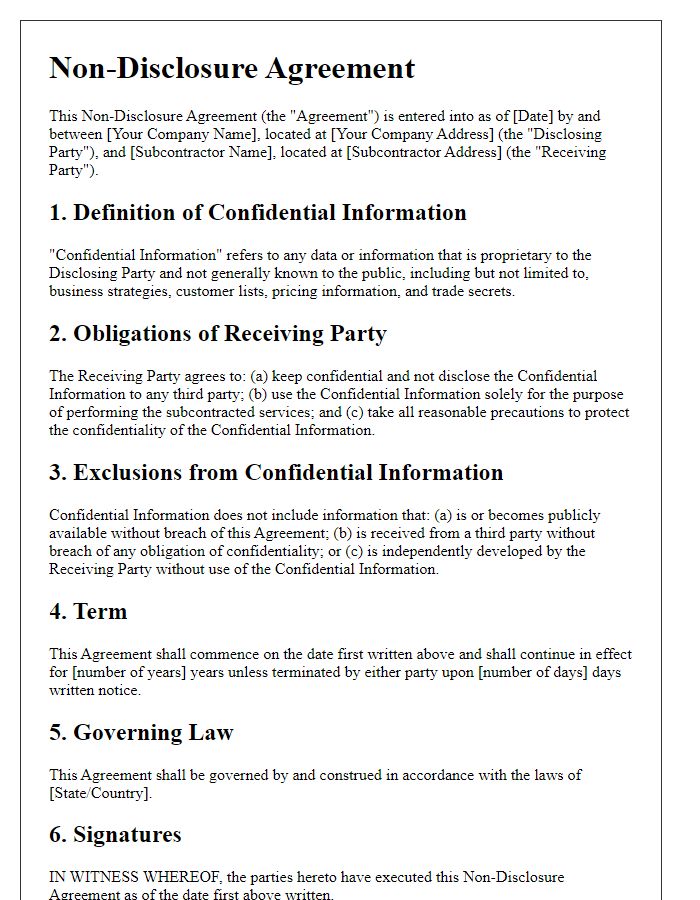
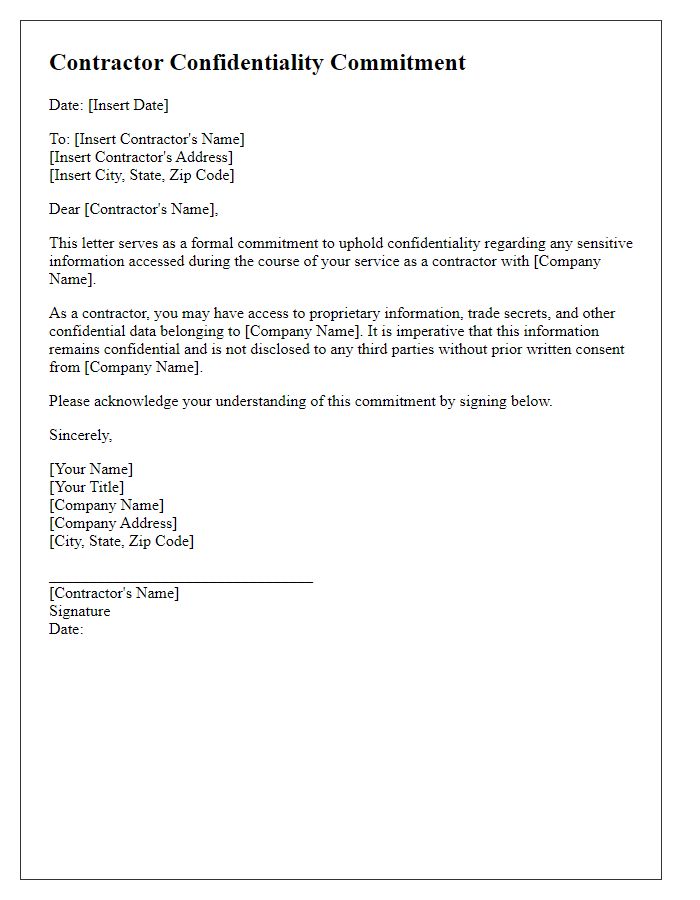
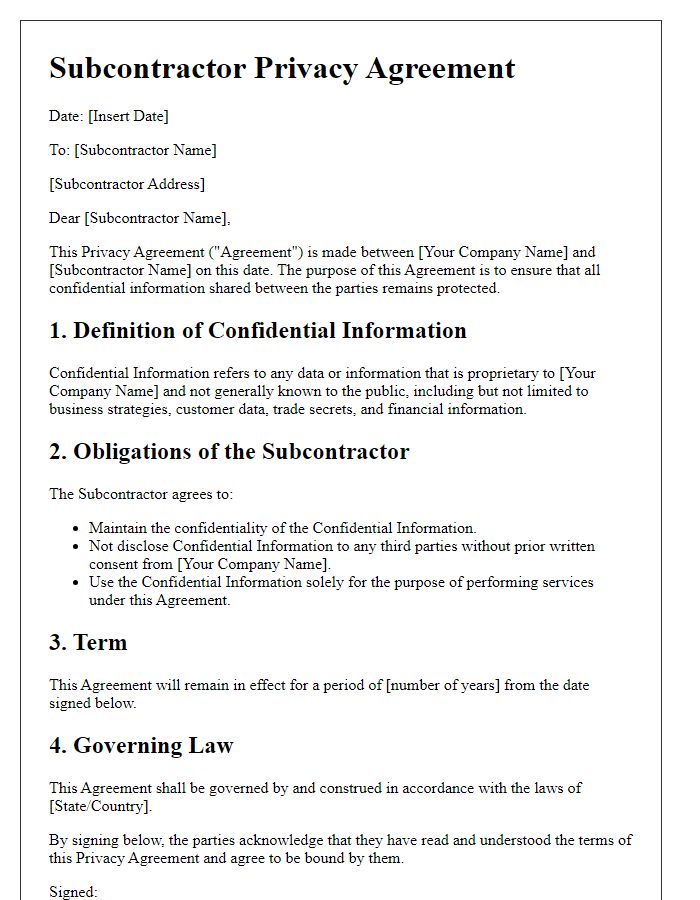
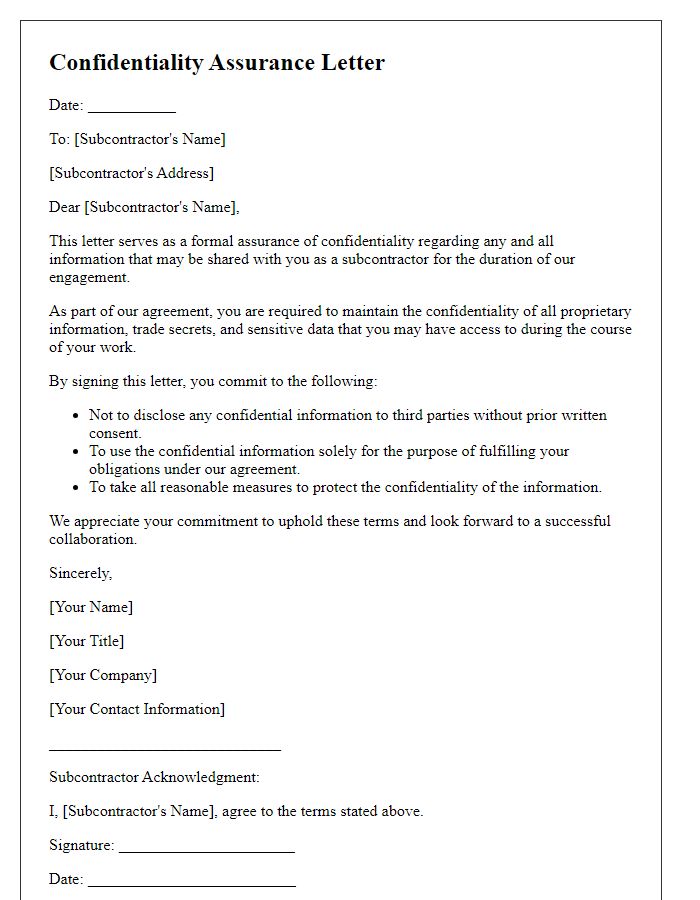
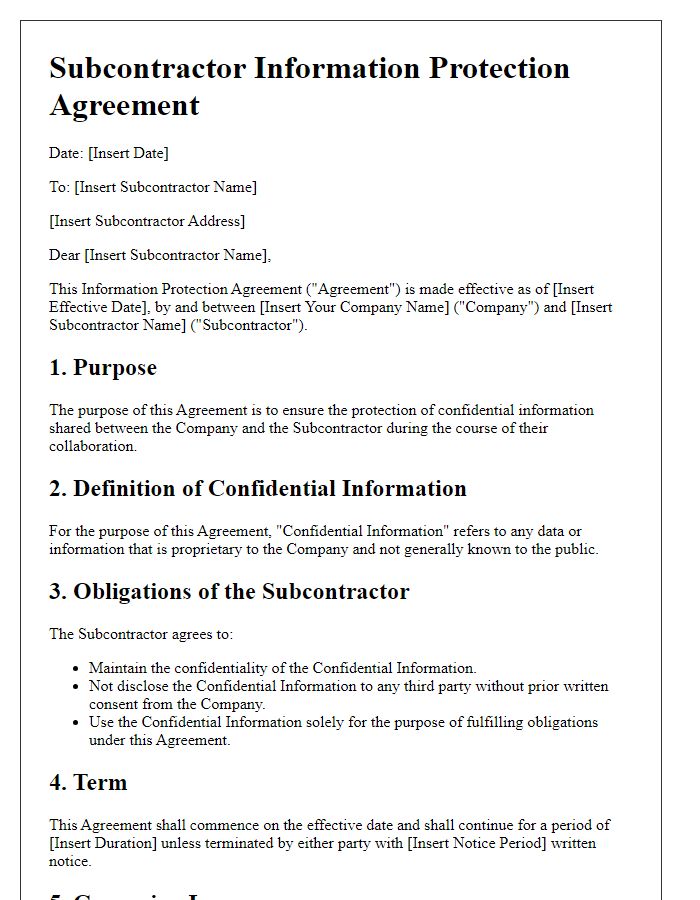
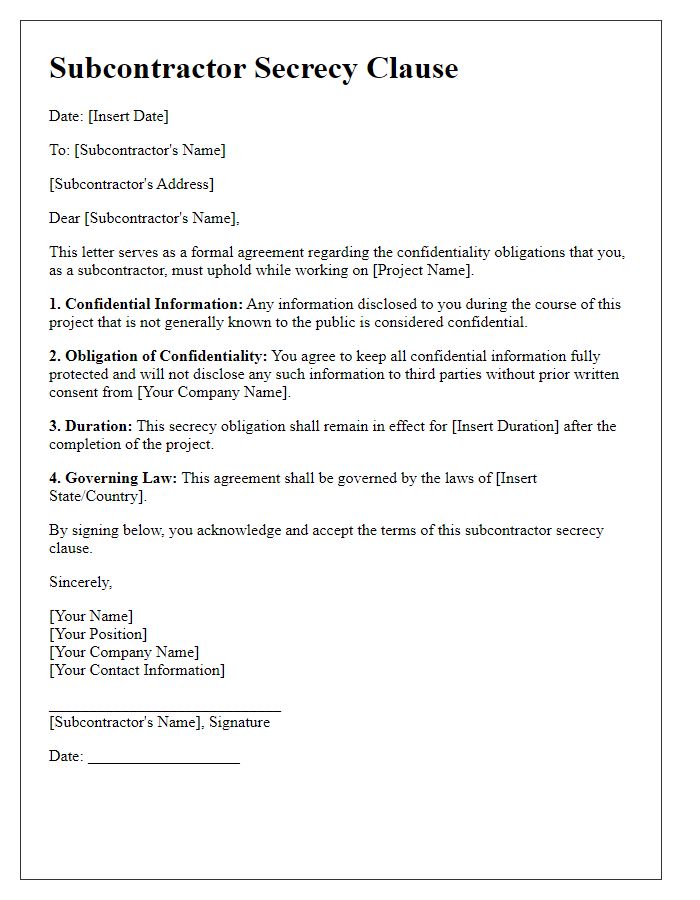
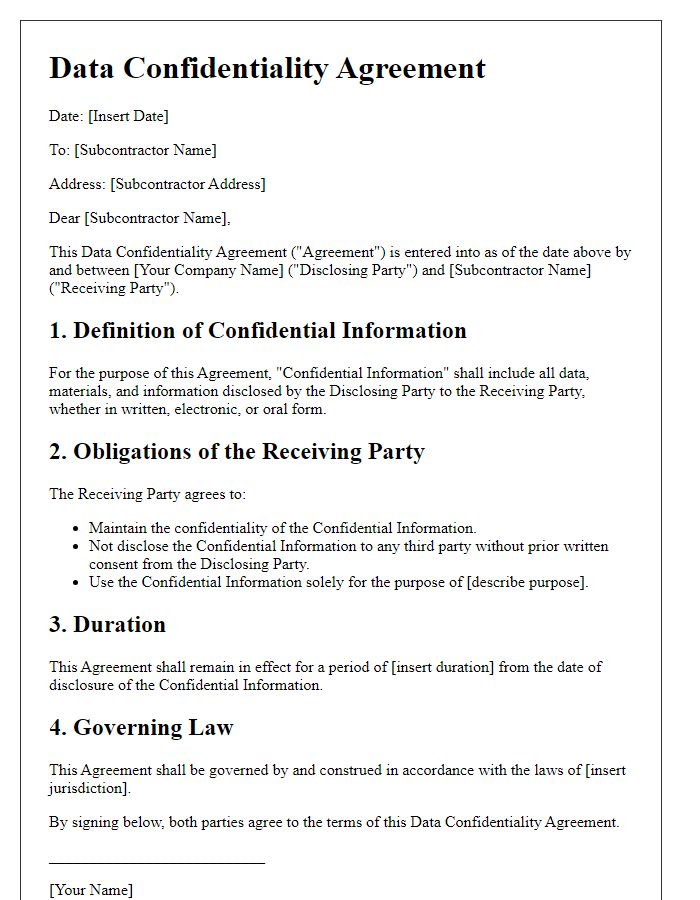
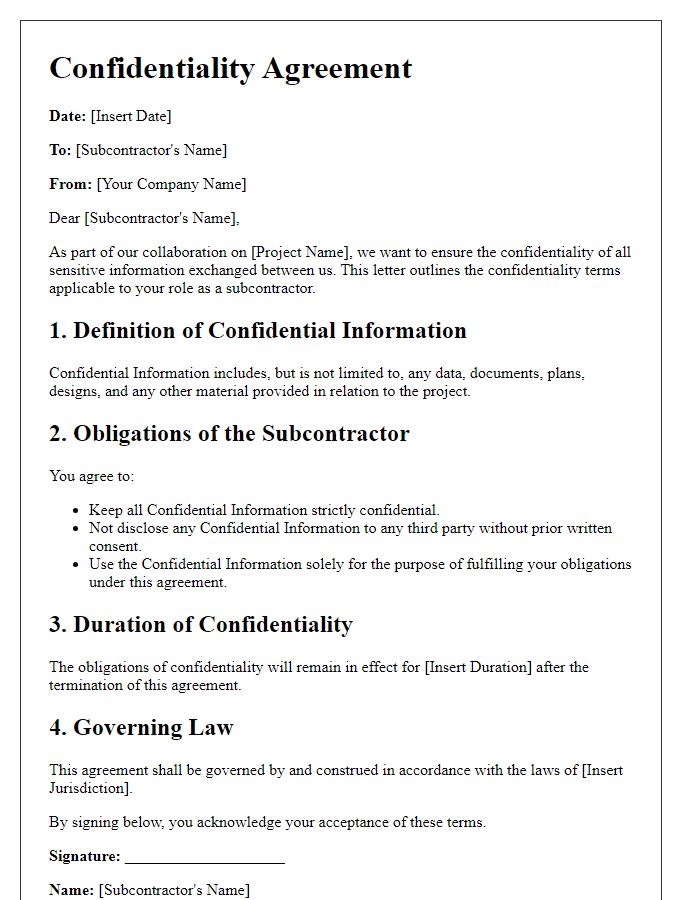
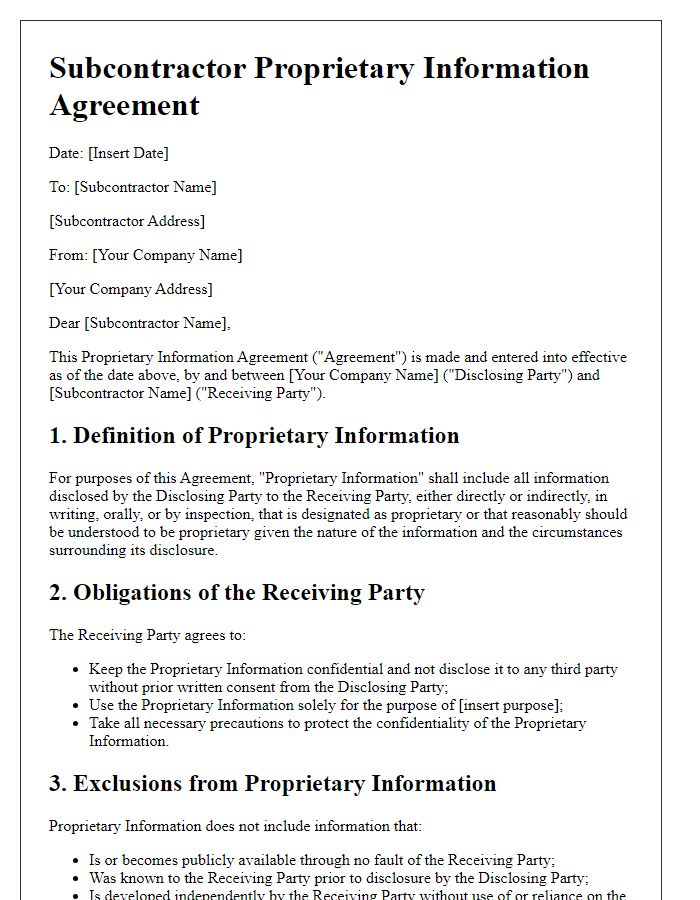
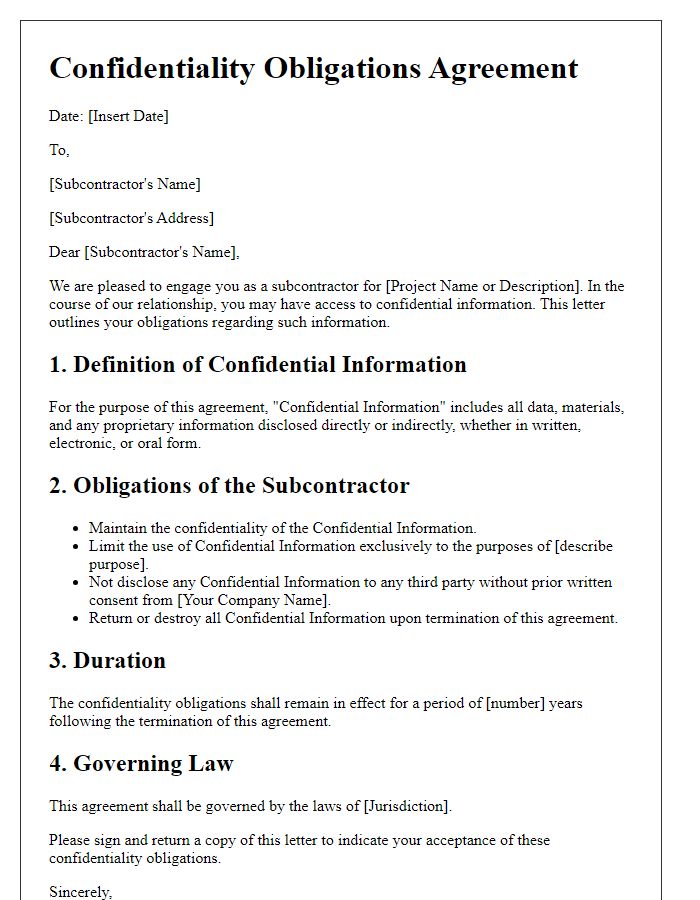


Comments